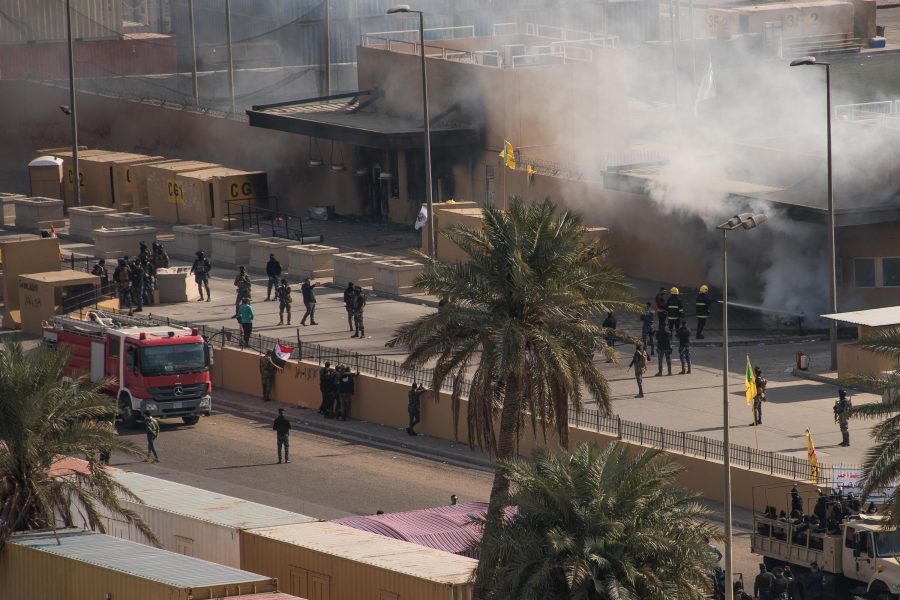The Jan. 3 US drone strike targeting Iranian Quds Force commander Qassem Soleimani at the Baghdad airport was taken because of an “imminent threat” against US personnel and in the aftermath of the Soleimani-directed attack on the US Embassy in the city, American officials said.
The Pentagon in a statement late Jan. 2 said President Donald Trump ordered the strike to kill Soleimani, who was “actively developing plans to attack American diplomats and service members in Iraq and throughout the region.” He was responsible for attacks on US bases in Iraq over the past several months, including the one on Dec. 27 that killed an American contractor.
“This strike was aimed at deterring future Iranian attack plans,” the statement reads. “The United States will continue to take all necessary action to protect our people and our interests wherever they are around the world.”
Speaking on CNN early Jan. 3, Secretary of State Mike Pompeo said there was an “imminent attack” taking place and the strike “saved American lives.”
Photographs of the drone strike show a burning wreckage of a vehicle that reportedly carried Soleimani and others outside a wall at the airport. The strike also killed Abu Mahdi al-Muhandis, the deputy head of the Iranian-backed Popular Mobilization Forces, according to CNN.
Iranian leader Ayatollah Sayed Ali Khamenei said in a Twitter statement there will be “severe revenge” for the “martyrdom” of Soleimani.
Soleimani was a high-profile leader of the Islamic Revolutionary Guard Corps and commander of the Quds Force, rising to power in the Iran-Iraq War of the 1980s. He is connected to the deaths and injuries of hundreds of US service members in the Iraq War through Iranian-backed militias and Iranian-provided weapons.
The US military and State Department are preparing for possible retaliatory acts. On Jan. 3, the State Department urged US citizens to leave Iraq immediately. Americans should not approach the Embassy, and all consular operations have been halted.
The Pentagon has ordered at least 750 more soldiers to the region in response to the tensions, with more expected. “We want to make sure that we’re prepared for any contingency as this unfolds in the coming days and weeks,” Defense Secretary Mark Esper told reporters Jan. 2 before the strike.
